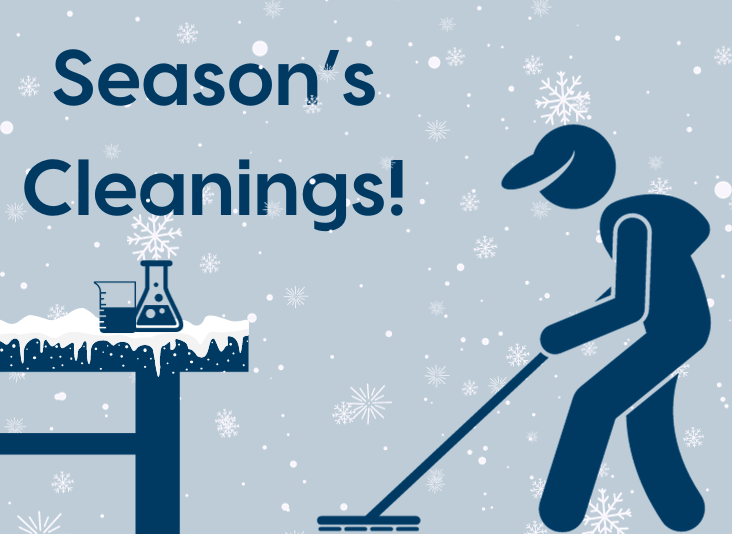Challenges with Pharmaceutical Waste Management in the Healthcare Industry
For more than a decade, the healthcare industry has grappled with confusing regulations around pharmaceutical waste management. These regulations can vary widely from state to state and have a big impact on organizational compliance. As regulations are constantly changing and nursing staff and other similar departments have other focuses and competing priorities, keeping everyone in-the-know is challenging.
This educational gap is rooted in one of the country’s largest areas of workplace turnover, where key players are tasked with keeping our fellow citizens healthy, strong, and in some cases, alive.
By improving our understanding of these critical departments – how they learn, where they fail, and ultimately what makes them excited to be a part of a solutions-driven team – EH&S professionals can close the pharmaceutical compliance gap and implement medical waste regulations.
The Current Environment
Based on what we’ve witnessed during pharmacy waste audits, many hospitals are not meeting federal, state, and local requirements related to collecting hazardous and state-regulated pharmaceutical waste. Here are some common instances currently happening in hospitals across the country:
- Staff is overwhelmed by the number of pharmaceutical waste categories. With so many responsibilities as well as changing regulations, accurately keeping track of a laundry-list of waste-related tasks can get lost.
- Healthcare professionals’ medical waste disposal education is lacking. Many healthcare institutions make the mistake of training only those who have in-depth roles with pharmaceutical waste management, leaving out important groups like the nursing staff.
- Collection containers have confusing labels. Without proper training on container labeling, many questions from the nursing staff can arise, such as: “What do you expect me to collect? You want me to collect those empty wrappers? How am I supposed to understand which container is the correct container?”
- Nursing staff has no input or control over the pharmaceutical waste program. Due to the nature of compliant pharmaceutical disposal methods, the nursing staff often becomes the unofficial center of a program. Yet without any input to build, maintain, or control the program, nurses often become frustrated with the unknown and ultimately begin collecting everything. Or even worse, collecting nothing.
The Cost of Pharmaceutical Waste in Healthcare
Beyond monthly disposal costs in dollars, poor medical waste training in healthcare can result in other costs that can negatively impact your organization. Some of these costs include:
- Lack of Program Buy-In. Results in staff confusion, program deficiencies, and regulatory compliance issues. If staff members aren’t on board, the pharmaceutical waste program won’t be successful.
- Collecting More Than What’s Required. Increases disposal and labor costs, and creates discrepancies with existing program policies.
- Lack of Competency. Staff members are unable to perform their primary job functions because they haven’t received proper, comprehensive training.
- Unsuccessful Program Roll-Out. Leads to reputation tarnish, lack of credibility, wasted time, and potentially losing talented resources due to frustration.
Reducing the Cost: You Have a Choice
When developing a program to educate your staff about pharmaceutical waste management, it’s important to understand that most training programs tend to lose some steam once implemented. Reducing cost in a sustainable way is difficult and often requires some upfront investment.
Most institutions will ultimately be forced to move onto the next compliance project or safety-related challenge. So when developing an education program, it’s critical to fill the pipeline with updates to modify and grow an existing pharmaceutical program. It’s also important to audit the program annually to identify compliance gaps and build on previous enhancements.
In many cases, employee retention hinges on an employee’s ability to feel comfortable and safe within the role he or she has been given. We have seen instances where employees have refused to participate until they have been given the training required to perform their roles. At a minimum, educating employees promotes smarter decision-making in unlikely scenarios.
One avenue to help foster support is to empower employees to own a process and to thrive within a system they helped create. Getting them and keeping them excited over a regulatory matter is difficult at best, but a smart place to begin is with program ownership. Ownership only exists through a high level of education and moving the needle forward. When training nursing staff, these tactics can be implemented to help reduce overall cost. For example, identifying “super users” within each department to assist with training can strengthen the end result and promote program buy-in.
Without a doubt, the most important thing for caregivers to focus on is their patients. Triumvirate Environmental understands this and realizes there is a solution to pharmaceutical waste problems caused by untrained nursing staff: to create a simplistic program that meets regulatory requirements and thoroughly trains all relevant teams. Click the button below to learn more about our pharmaceutical waste management services, and how we can help you reduce costs and stay compliant.






